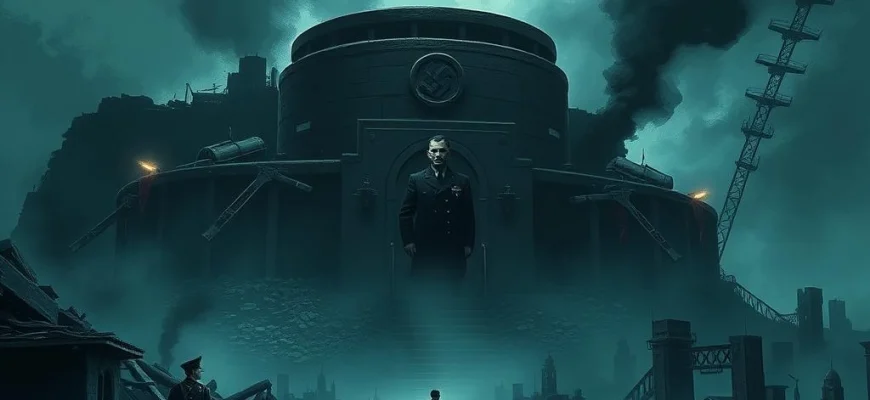If you were captivated by 'Death in the Bunker: The True Story of Hitler's Downfall' (2004), this article is for you. We’ve curated a list of 10 gripping movies and shows that delve into similar themes of historical intrigue, wartime drama, and the fall of infamous figures. Whether you're a history buff or a fan of intense storytelling, these picks will keep you on the edge of your seat.
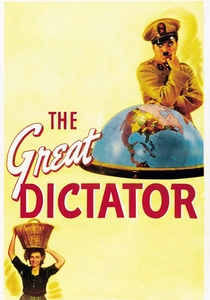
The Great Dictator (1940)
Description: A satirical take on dictatorship and tyranny, using humor to expose the absurdity and danger of absolute power. The film's bold critique of fascism remains relevant and powerful.
Fact: Charlie Chaplin's first full talkie. The famous final speech was added late in production, as Chaplin felt compelled to directly address the audience about the dangers of fascism.
 Watch Now
Watch Now 
Hitler: A Career (1977)
Description: A documentary that dissects Hitler's political strategies and the cult of personality he cultivated. The analytical approach offers a deep dive into the mechanics of his regime and its downfall.
Fact: The film uses extensive archival footage, some of which had never been seen before its release. It was one of the first documentaries to critically examine Hitler's public image and propaganda techniques.
 Watch Now
Watch Now 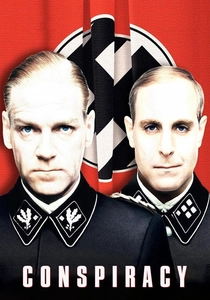
Conspiracy (2001)
Description: A chilling dramatization of the Wannsee Conference, where Nazi officials coldly planned the Holocaust. The film's stark, dialogue-driven approach highlights the bureaucratic evil of the regime.
Fact: The entire film was shot in just 14 days. The script is based on the actual minutes taken during the Wannsee Conference, which were discovered by Allied forces after the war.
 Watch Now
Watch Now 
Max (2002)
Description: A fictionalized account of Hitler's early years as a struggling artist, exploring how rejection and resentment can fuel extremism. The film's psychological depth offers a unique perspective on the making of a dictator.
Fact: The film was controversial for its speculative portrayal of Hitler's youth. It was shot in Budapest, which doubled for pre-WWI Vienna.
 Watch Now
Watch Now 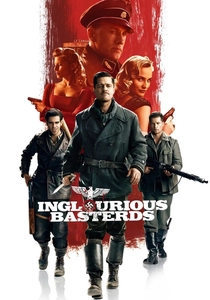
Inglourious Basterds (2009)
Description: A revisionist war film that reimagines the end of the Nazi regime with a violent, cathartic twist. The film's tension-filled scenes and focus on resistance align with the themes of defiance and retribution.
Fact: The film's title is intentionally misspelled, a nod to a 1978 Italian war film. The opening scene, lasting over 20 minutes, is renowned for its suspense and dialogue.
 Watch Now
Watch Now 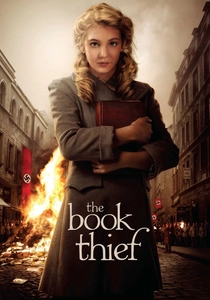
The Book Thief (2013)
Description: Set in Nazi Germany, the film portrays the impact of the regime on ordinary citizens, particularly through the eyes of a child. Its focus on resistance, survival, and the power of stories under oppression resonates deeply.
Fact: The film's young protagonist, Liesel, is taught to read by her foster father using a book he stole back from Nazi book burnings. The story is narrated by Death, providing a unique perspective on the era.
 Watch Now
Watch Now 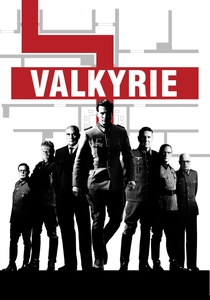
Valkyrie (2008)
Description: Focuses on a high-stakes conspiracy within Nazi Germany, detailing the meticulous planning and ultimate failure of an assassination attempt. The tension and historical accuracy mirror the intense atmosphere of a critical moment in history.
Fact: Tom Cruise, who plays Claus von Stauffenberg, wore an eye patch to accurately portray the historical figure, who lost an eye in combat. The film was shot in Berlin, including at the actual Bendlerblock, where the real conspiracy took place.
 Watch Now
Watch Now 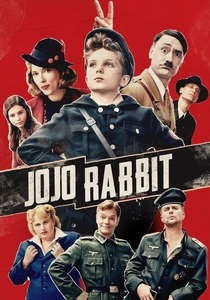
Jojo Rabbit (2019)
Description: A dark comedy that satirizes Nazi ideology through the eyes of a brainwashed child, blending humor with poignant commentary on indoctrination and humanity.
Fact: Taika Waititi, who plays Hitler in the film, is of Jewish and Maori descent. The film was partly inspired by the director's own experiences with bullying and his mother's stories of World War II.
 Watch Now
Watch Now 
Hitler: The Rise of Evil (2003)
Description: Chronicles Hitler's ascent to power, emphasizing the societal and political conditions that allowed his rise. The film's exploration of manipulation and propaganda provides insight into the mechanisms of dictatorship.
Fact: The production faced controversy for its portrayal of Hitler's early life, with some historians arguing it humanized him too much. The film was shot in Prague, standing in for pre-war Germany.
 Watch Now
Watch Now 
The Plot to Kill Hitler (1990)
Description: Explores the moral dilemmas and risks faced by those who opposed Hitler from within Germany. The film's focus on resistance and betrayal aligns with the tension of clandestine operations against a tyrannical regime.
Fact: This TV movie was one of the first English-language productions to delve into the July 20 plot. It was praised for its historical accuracy and attention to detail.
 Watch Now
Watch Now 
